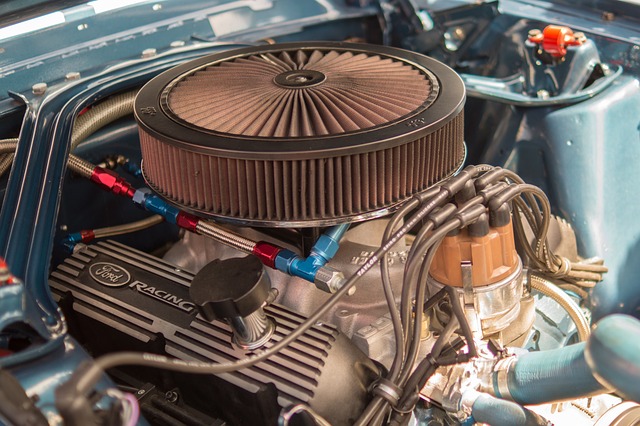Regular maintenance of your HVAC system is key for home comfort and energy efficiency, extending the system's lifespan and reducing utility costs. Proactive homeowners who perform routine checks and cleans can prevent costly future repairs. This includes changing air filters, clearing condensate drains, ensuring blower motors and fan blades are clean, adjusting thermostats for optimal performance, checking and recharging refrigerant levels, and addressing any leaks promptly. It's also important to keep the outdoor unit clear of debris for proper airflow and maintenance. Engaging in these home repair and maintenance practices ensures your HVAC system operates efficiently, particularly during extreme weather conditions, and contributes to better indoor air quality, a safe living environment, and long-term cost savings.
Ensuring your home’s HVAC system operates efficiently is paramount for year-round comfort and energy savings. This comprehensive guide delves into the intricacies of HVAC maintenance and repair, offering homeowners practical insights to keep their systems in top condition. From the significance of regular upkeep to understanding complex components, selecting the right professionals, and recognizing when an issue necessitates immediate action, this article equips you with the knowledge needed for informed decision-making in home repair and maintenance. Navigate through essential maintenance checks, energy efficiency assessments via SEER ratings, warranty clarifications, and more, all tailored to enhance your HVAC system’s performance and longevity.
- The Importance of Regular HVAC Maintenance for Homeowners
- Key Components to Inspect During HVAC System Checks
The Importance of Regular HVAC Maintenance for Homeowners

Regular maintenance of your HVAC system is a cornerstone in the upkeep of a comfortable and energy-efficient home environment. Homeowners who prioritize routine checks and servicing of their heating, ventilation, and air conditioning systems can anticipate and prevent many common issues before they escalate into costly repairs. A well-maintained HVAC unit operates more efficiently, reducing energy consumption and lowering utility bills. This proactive approach not only extends the lifespan of your system but also ensures that it functions at peak performance when you need it most, particularly during extreme weather conditions.
Moreover, consistent maintenance helps in identifying potential problems early on. By catching minor malfunctions or wear and tear early, homeowners can avoid unexpected breakdowns that could disrupt daily life or cause significant discomfort. Professional technicians can clean, inspect, and adjust your HVAC system, ensuring each component performs optimally. This regular care also safeguards against the growth of mold or mildew, which can impact indoor air quality, affecting both the health of occupants and the overall functionality of the HVAC system. In essence, investing in home repair and maintenance for your HVAC system is a wise choice for maintaining a safe, healthy, and comfortable living space, all while saving on energy costs in the long run.
Key Components to Inspect During HVAC System Checks

Regular maintenance and timely repairs are crucial for ensuring the efficiency and longevity of your HVAC system. During routine checks, several key components should be inspected to maintain optimal performance. Firstly, inspecting the air filters is a fundamental aspect of HVAC maintenance as dirty or clogged filters can restrict airflow, leading to reduced system efficiency and potentially causing damage. It’s imperative to clean or replace these filters according to the manufacturer’s recommendations or more frequently during high-use periods. Additionally, the condensate drain should be checked for blockages that could lead to water damage within your home or cause the system to malfunction. Ensuring that the blower motor and fan blades are clean and functioning correctly is also vital, as they play a significant role in distributing conditioned air throughout your living spaces. Furthermore, the refrigerant levels must be verified; any leaks should be addressed promptly by a professional to maintain proper system cooling capacity and performance. Regular inspection of the thermostat settings and calibration can ensure accurate temperature control, which is essential for home comfort and energy conservation. Lastly, the outdoor unit should be cleared of debris such as leaves, branches, or grass clippings that could impede airflow or damage components. Engaging in these meticulous inspection practices and conducting repairs as needed are pivotal for maintaining a well-functioning HVAC system and contributing to overall home repair and maintenance.
Effective home maintenance, particularly in the realm of HVAC systems, is pivotal for ensuring energy efficiency, prolonging system lifespan, and maintaining optimal indoor comfort. Regular inspections and meticulous upkeep are not merely preventative measures; they are integral to safeguarding the performance and reliability of your heating and cooling units. By adhering to best practices in HVAC maintenance and repair, homeowners can mitigate costly breakdowns and extend the functionality of their systems. Investing in professional assistance for these tasks is a wise choice for those looking to maintain a comfortable, safe, and energy-efficient living environment. Home Repair and Maintenance remain cornerstones of responsible property management, and when it comes to your HVAC system, the adage ‘an ounce of prevention is worth a pound of cure’ certainly holds true.
